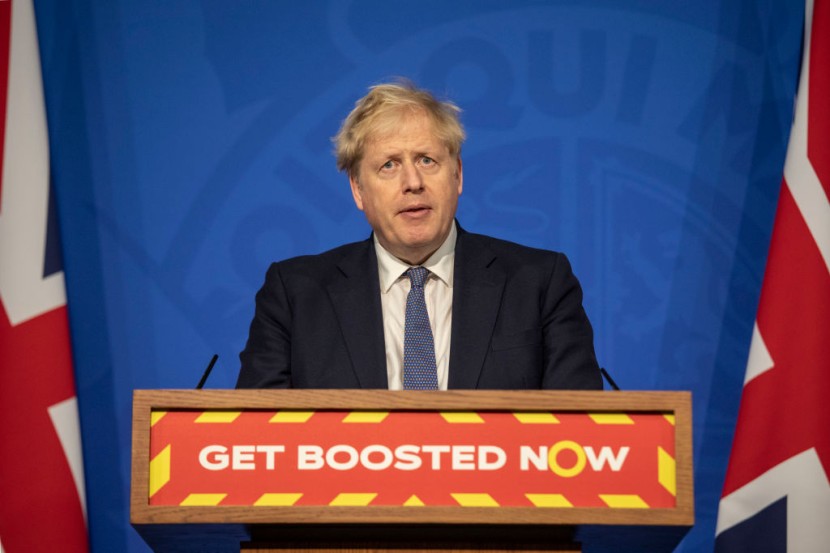
British Prime Minister Boris Johnson is confident that the country's plan B efforts in preventing the further spread of omicron is what's needed and not another strict lockdown.
According to reports, Johnson introduced the country's plan B measures ahead of the holidays wherein everyone is required to wear masks on public transport and shops.
Boris Johnson tells Britons there won't be another lockdown
On Tuesday, the prime minister released a statement saying that the vaccination and booster drive in the country will also help prevent a surge in omicron cases.
"Together with the Plan B measures that we introduced before Christmas, we have a chance to ride out this Omicron wave without shutting down our country once again. We can keep our schools and our businesses open, and we can find a way to live with this virus," Johnson said via Reuters.
The prime minister also acknowledged the fact that the road ahead will continue to be challenging and that some services will be disrupted because of the number of active cases.
Hospitals and healthcare workers will also experience more pressure in the coming weeks.
Omicron mutations are high but symptoms are not severe
Chief Medical Officer Chris Whitty is confident that omicron is not as serious as delta because the mortality rates have not risen despite the increasing number of cases.
Johnson also said that most people infected with omicron in the United States are not vaccinated.
According to the New York Times, schools in England also reopened on Tuesday but with new measures like mask requirements and testing. Some teachers who recently retired are being asked to return to work to address the absences.
Professor Neil Ferguson, an epidemiologist at Imperial College London also said that the growth in areas has slowed down. However, it's still too early to say whether new infections were going down.
But Ferguson also stressed that it would still take a few weeks before the full effect of social mixing over the holidays could be reported.
According to Ferguson, vaccination is also holding up in terms of protection against severe disease and the fact that omicron is less severe compared to delta has helped.
Wales, Scotland, Northern Ireland announce restrictions
Last week, other parts of the United Kingdom already announced stricter measures to help prevent the spread of omicron.
In Wales, nightclubs were forced to close down starting last Sunday and only a maximum of six people could meet at pubs, restaurants, and cinemas.
There is also a cap of 30 people and 50 people that are allowed to be at indoor and outdoor events, respectively.
In Scotland, social distancing measures are in place. A one-meter distance is required at large events and the attendees will only be limited to 100 people for indoor standing events and 200 for indoor seated events.
Nightclubs also had to close down for three weeks and table service is also required in settings where alcohol is being served.
In Northern Ireland, all types of indoor events have been banned. Nightclubs were also shut down, and a limit of six people or 10 people from a single household are the only ones allowed in indoor hospitality settings, according to NDTV.
Related Article: 12 People in France Infected With Possible COVID-19 Variant IHU; New Strain Has 46 Mutations
© 2026 HNGN, All rights reserved. Do not reproduce without permission.







